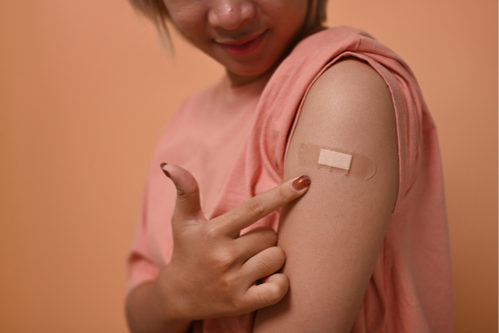
In the 20th century there were events that marked the history of medicine: the widespread use of vaccines and the discovery of antibiotics. The former made it possible to prevent most infectious diseases, the latter made it possible to cure them. These discoveries were so impactful that they changed the way human beings died. Infectious diseases, the main cause of death, were progressively replaced by others - namely cardiovascular, cerebrovascular and COPD diseases - to such an extent that in the top ten causes of death in humanity we only find two infections: pneumonia and diarrheal diseases.
Autumn is the right time to prevent infectious diseases, which have a greater impact in cold weather. In addition to the traditional flu and pneumonia vaccines, this year's vaccination program includes the inoculation of the anti-COVID vaccine. The pandemic is over, but the virus remains. We must continue to protect, especially the most vulnerable.
As for the pneumonia vaccine - the anti-pneumococcal vaccine - it provides protection against pneumococci, the main causative agents of pneumonia. All people over the age of 65, even if they are healthy, or people living with a chronic illness, or who have an immunity deficit due to illness, or following immunodepressant treatments (for example, drugs to fight cancer or autoimmune diseases) should have their pneumococcal vaccination schedule updated (usually three immunizations). The DGS guidelines stipulate that the vaccine is free for some groups of people living with an illness (e.g. without a spleen, with cancer or AIDS).
The third infection that warrants prevention is the flu, caused by a respiratory virus that mutates frequently, making it necessary to update the vaccine and administer it annually.
As flu is a highly transmissible infectious disease, the priority groups for vaccination go far beyond those indicated for the pneumococcal vaccine. In addition to individual protection, the aim is to prevent the transmission of flu in places with a high concentration of people, such as hospitals, prisons and residential facilities for the elderly. Staff and users of these institutions should get vaccinated. The same attitude is recommended for health professionals and carers of frail people.
This year, COVID and flu vaccines will be administered free of charge in pharmacies to certain priority groups.
Vaccinating adults doesn't end with the three vaccines recommended above. If you're over 65, talk to your doctor, because there's a new vaccine waiting for you: the vaccine against the
herpes zoster virus, responsible for shingles.
copyright © by the National Association of Pharmacies
________
WITH SHEE'S HELP
Find a multidisciplinary team of health professionals, always with friendly advice, to provide you with safe, close and personalized care.
Register now 👉 here.
Make an appointment with your pharmacist 👉 here.
Discover all the products, at the best prices, all year round, in the online store 🛒.
Life is easier when you're healthy.